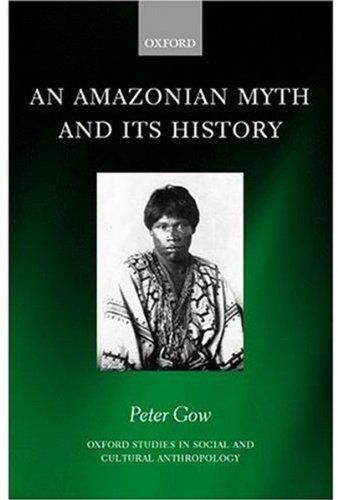
An Amazonian Myth and Its History
Peter Gow unites the ethnographic data collected by the fieldwork methods invented by Malinowski with Levi-Strauss's analyses of the relations between myth and time. His book is an analysis of a century of social transformation in an indigenous Amazonian society, the Piro people of PeruvianAmazonia, taking as its starting point a single myth told to the author by a Piro man. Gow explores Piro history and ethnography outwards into the domains of myth-telling in general, and following the logic of certain important myths, further out into important domains of Piro experience such asvisual art, shamanry and girls' initiation ritual. All of these domains, like the myths themselves, have been demonstrably changing over the period since the 1880s. The book then shows how these changes are in fact transformations of transformations, changes in social forms that are intrinsicallyabout change. The logic of these changes are then followed through the historical circumstances of Piro people from the 1880s to the 1980s, to show how the intrinsically transformational nature of Piro social forms led them to respond in the ways that they did to the coming of rubber bosses,missionaries, and film-makers.This book makes an important contribution to debates in anthropology on the nature of history and social change, as well as addressing neglected areas such as myth, visual art, and the methodological issues involved in addressing fieldwork and archival data.